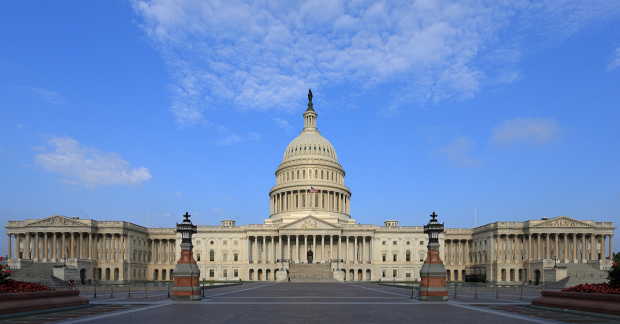"Take Care of This House": A Brief History of a Showtune You Should All Listen to Today
Watch Cynthia Erivo perform this number from Leonard Bernstein and Alan Jay Lerner’s 1600 Pennsylvania Avenue.

(© Wikimedia Commons)
In 1976, Leonard Bernstein and Alan Jay Lerner debuted their musical 1600 Pennsylvania Avenue on Broadway at the Mark Hellinger Theatre (now the Times Square Church). It was Bernstein’s last original Broadway score, and the show, co-directed and co-choreographed by Gilbert Moses and George Faison after the original creative team departed out-of-town, was a massive flop, closing after 13 previews and seven performances.
1600 Pennsylvania Avenue is a retelling of the first 100 years of White House through the eyes of its main residents: the presidents and first ladies, and three generations of their Black serving staff. One actor plays all of the presidents, one actor plays all of the first ladies, one actor plays male servant Lud, one actor plays female servant Seena. Presented in a bicentennial year, audiences expected a rah-rah show of patriotism; what they got was an ahead-of-its-time indictment of the racism that has pervaded the United States since its creation. Critics, naturally, thought it was too preachy and superficial.
Though the show disappeared awfully fast, several of its songs have survived to become seminal texts in the “Great American Songbook.” Chief among them is a song I’ve been thinking about a lot over the past 24 hours, “Take Care of This House.” In the context of the show, the song finds Abigail Adams (originally played by Patricia Routledge) giving instructions to Lud (Gilbert Price) on the day-to-day care of the White House. But, naturally, it’s a metaphor for preserving the sanctity of the Republic:
Take care of this house
Keep it from harm
If bandits break in sound the alarm
Care for this house
Shine it by hand
And keep it so clean
The glow can be seen all over the land.
Here is Cynthia Erivo’s particularly moving rendition:







